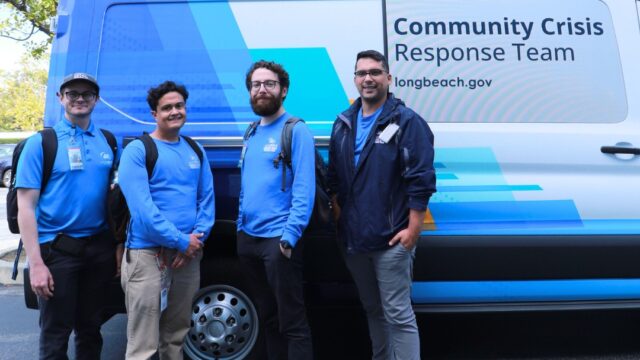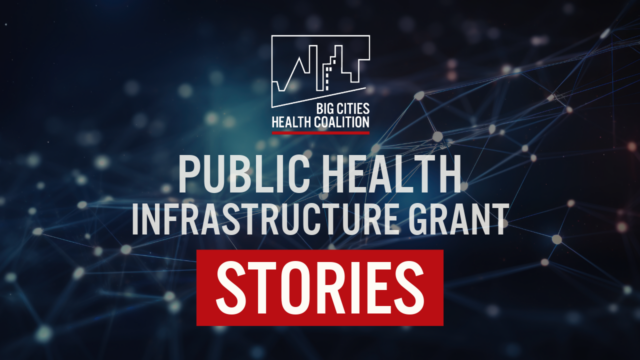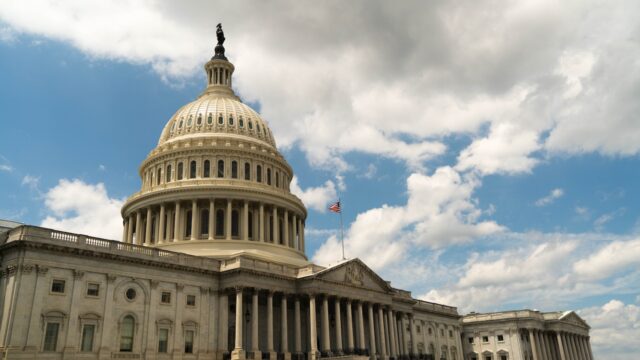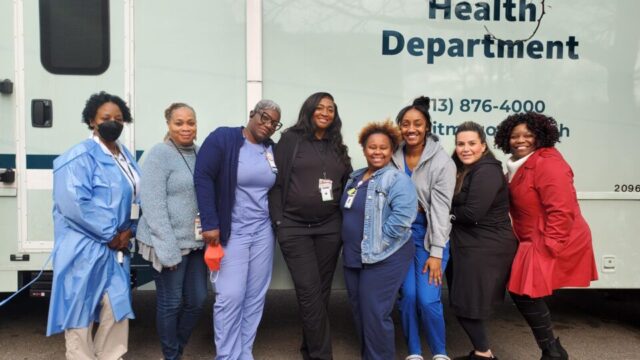Bipartisan action urged to support public health workforce and infrastructure
May 2024

In advance of the House Select Subcommittee on the Coronavirus Pandemic’s June 3 hearing with Dr. Anthony Fauci, BCHC joined nearly 100 other public health and medical organizations to urge subcommittee members to work in a bipartisan manner to explore how Congress can best support our nation’s public health workforce and strengthen our long-neglected public health infrastructure.
Throughout the COVID-19 pandemic, we have benefited greatly through the life-saving work of the nation’s health care workers and public health professionals as scientists worked to develop safe and effective vaccines at record speed, saving millions of lives.
At the same time, the pandemic highlighted our long-neglected public health infrastructure and the strain on our woefully underfunded federal, state, tribal, local, and territorial health agencies. We have despaired as misinformation has spread, costing lives and livelihoods.
We urge [Congress] to use this and other opportunities to help educate our communities and your constituents about the important role public health plays in protecting our nation from health threats and improving the public’s health overall.
As we deal with the ongoing challenges of the pandemic, and other new and emerging health threats, the critical role of public health must be prioritized by Congress with an intense focus on renewing and rebuilding our public health infrastructure and workforce.
The nation’s public health officials are on the front lines every day working to improve and protect the health of all of our communities. Unfortunately, during the pandemic, public health professionals who promoted and worked to implement evidence-informed public health measures were contradicted or unfairly challenged as they carried out their responsibilities. Some of these dedicated professionals have been harassed or threatened for doing their work and a substantial number of professionals have been fired, have retired early or have terminated their employment due to fear for themselves and their families and inability to protect the communities they serve.
Additionally, the authority of some state and local public health agencies is being curtailed. Most recently, between May of 2022 to December 2023, 14 states have passed laws that limit public health authority, reallocate public health authority, limit the state enforcement of federal law, limit public health measures or preempt public health measures.
At the same time, the pandemic has taken a toll on the mental health of many in the public health workforce. In a survey of more than 26,000 workers taken during the pandemic, more than half said they had experienced symptoms of depression, anxiety, PTSD, and suicidal ideation.
Our leaders in Congress must step up and call out these efforts to block public health authority and the harassment of the workforce. We urge you to use this and other opportunities to help educate our communities and your constituents about the important role public health plays in protecting our nation from health threats and improving the public’s health overall.
While the public health system was highly visible during the pandemic, we must remember that this system of dedicated health professionals is hard at work every day, implementing protections and programs to keep the nation safe. Among its many responsibilities, the nation’s public health workforce helps ensure our food supply is safe, educates and promotes access to childhood vaccines, implements programs to prevent chronic diseases like cancer, heart and lung disease and diabetes, prevents childhood lead poisoning, prevents birth defects and protects the most vulnerable in our communities from health impacts of extreme heat, wildfires and vector-borne diseases. Additionally, we are currently faced with many new and ongoing health challenges including drug overdose and gun violence epidemics, the H5N1 bird flu outbreak in poultry and dairy cows and at least three human infections, and more than 8 measles outbreaks have been recorded so far in 2024, with 21 states reporting at least one case.
Concrete steps that Congress can take to support and strengthen our public health system include:
As public health advocates, we stand ready to work with Congress on these and other efforts to improve the nation’s public health system, strengthen the workforce and protect the health of our communities.


